
In the last year we had some significant trends and challenges in the job market, particularly in the technology sector. The economic conditions, inflation, and other factors are leading job seekers to adjust their preferences, potentially seeking roles that offer more stable compensation or benefits.
The introduction of Generative AI, which may be used for various tasks, including content creation and automation, could potentially impact the demand for junior and diverse talent in certain industries.
“Tech hiring has changed dramatically from 2022 to 2023” comment the CEO Hired Josh Brenner “The last 12 months have been an incredibly challenging time for everyone in the tech industry, for managers and engineers, the tech workers who support them, and for recruitment and talent teams. We witnessed impacts from layoffs, hiring freezes, inflation, and the explosion of generative artificial intelligence (AI).”
Hired run a report regarding all the changes in tech hiring. These findings are based on the analysis of data from over one million interview requests and nearly 250,000 jobseekers on Hired’s marketplace from January 2019 through June 2023 inclusive. Hired also surveyed over 1,300 global tech professionals on its platform and a random sample of 200 employers to understand how the current state of tech hiring has impacted preferences for in-demand candidates and skills, salary expectations, benefits, flexible work, and more topics.
Key Findings on the State of Tech Salaries:
1) The inflation rate continues to cool, but a period of higher interest rates and in - creased costs for goods and services have tempered salary gains from the last four years. US tech salaries have seen the largest year over year decline in the past five years. In fact, when adjusted for inflation, US tech salaries have dropped to their lowest point during the same period. Workers are grappling with this change in the face of competition for roles.
In the UK, inflation-adjusted salaries are down 7% for remote salaries, and down 3% for local, compared to 2022.
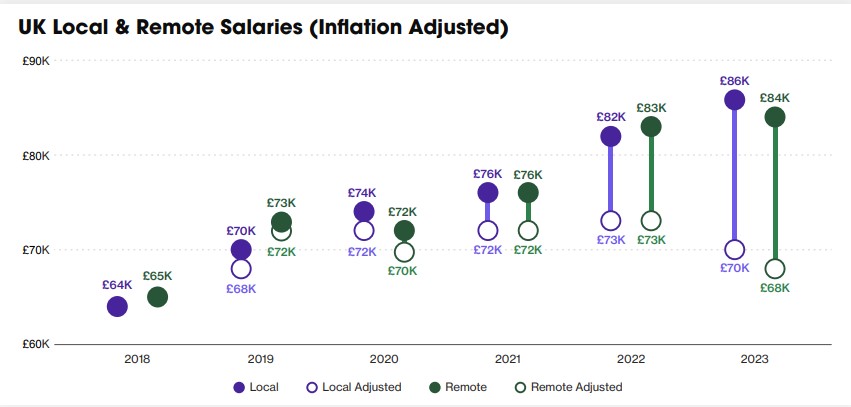
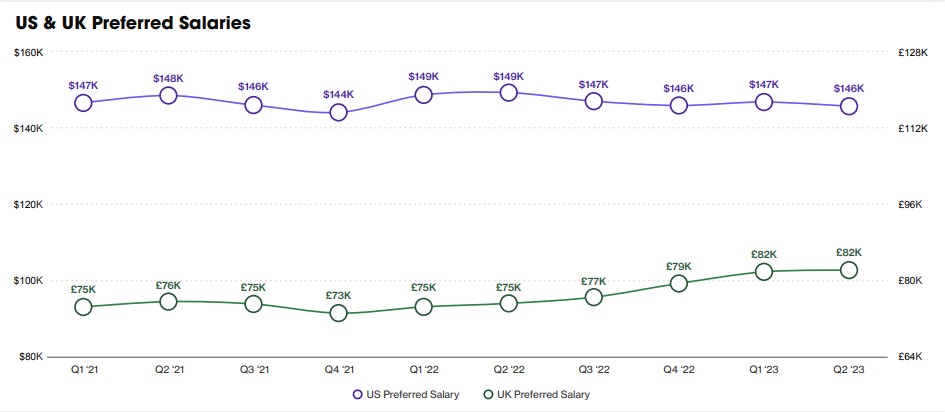
2) Engineering Managers commanded the highest salaries in both the US and UK, while engineers with specialized skills in AI, security, data, and machine learning show the most demand.
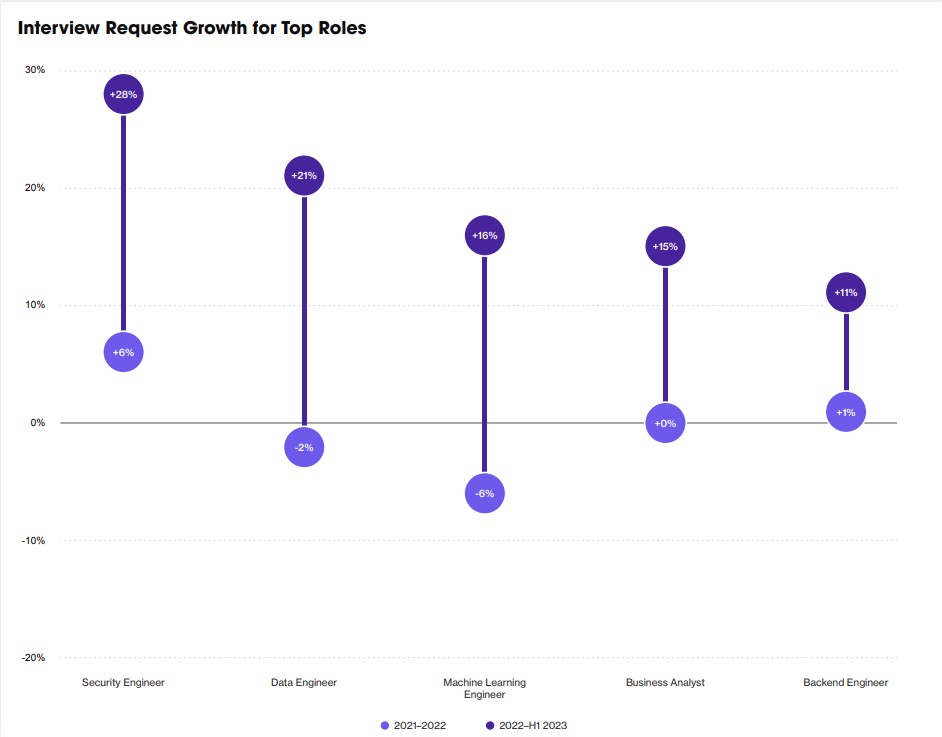
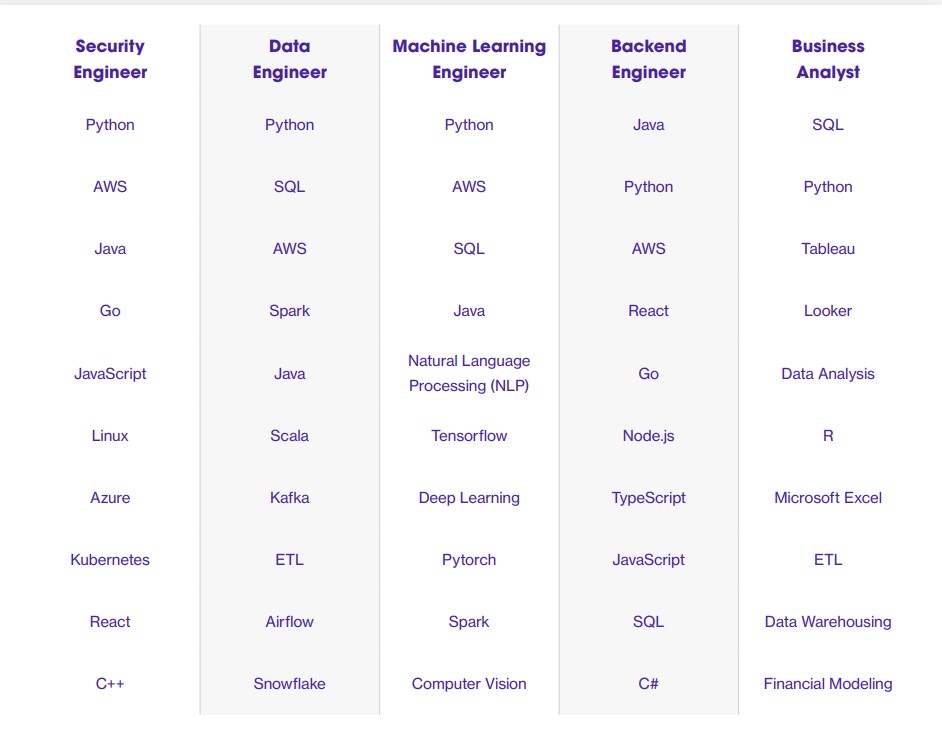
3) Companies are following the exodus of talent from higher cost-of-living (CoL) areas, as well as sourcing remote candidates in lower CoL markets, but in fewer locations overall. By focusing on fewer markets, some companies have opened new offices for in-person collaboration versus remote teams spread across borders.
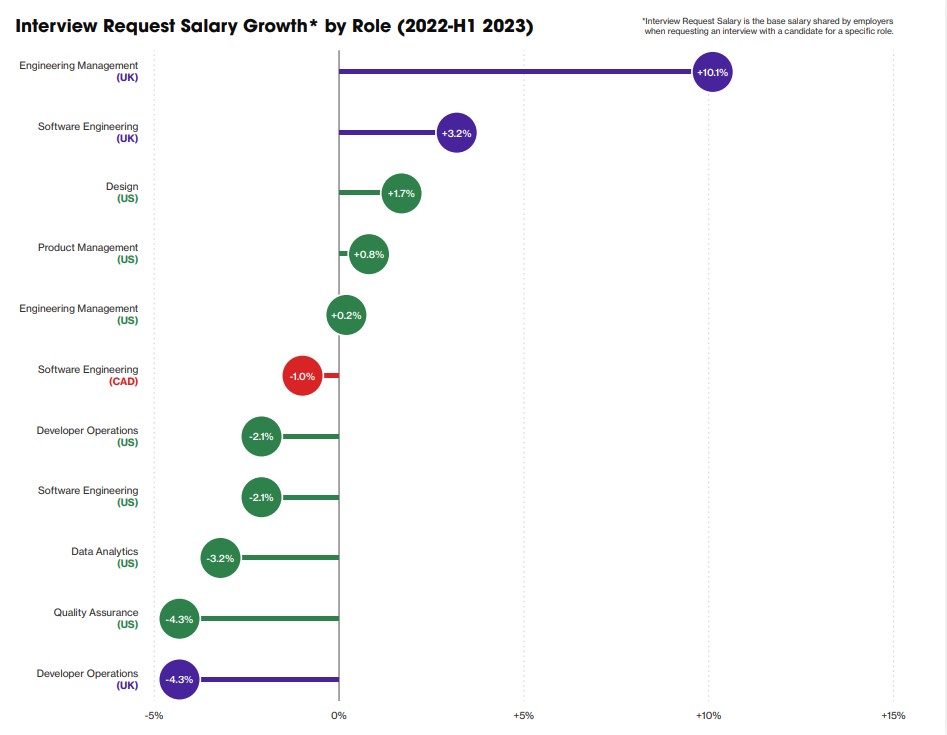
4) Generative AI appears to be threatening junior talent, or those with less than four years of experience the most, but also presents an opportunity for new roles and applications.
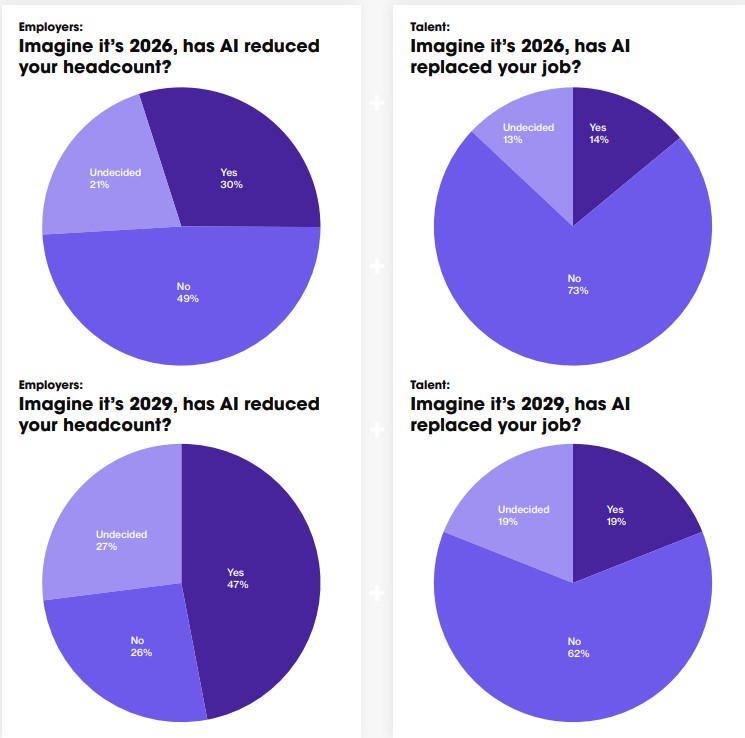
5) In general, enterprise and midsize companies have pulled back on remote flexibility for new roles, while eSMBs and SMBs have increased their appetite for remote talent. Experienced candidates largely prefer remote, but have been more open to alternatives in this hiring environment.
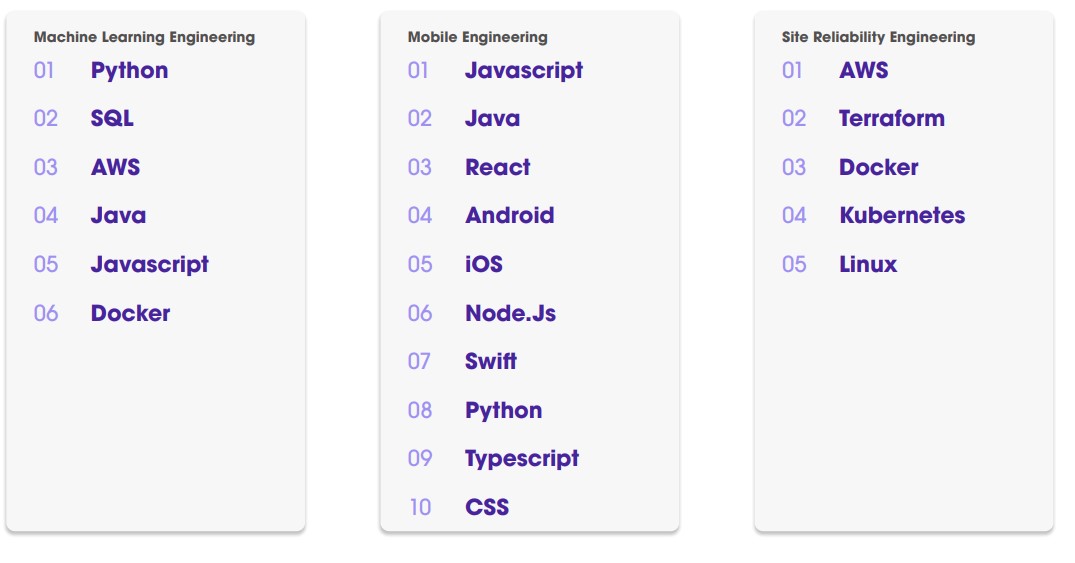
READ THE FULL REPORT HERE